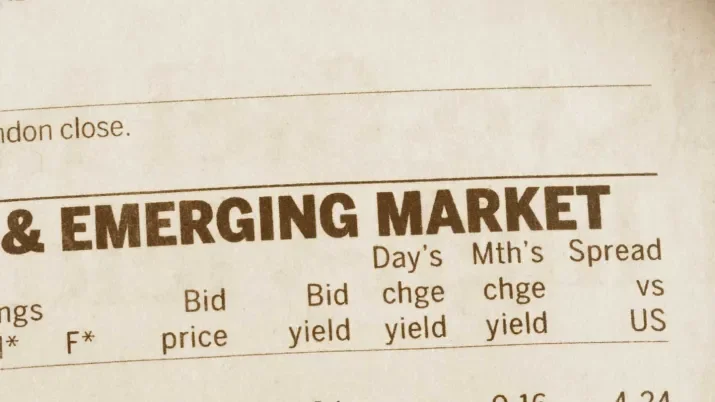Chinese economy: The New Year marks the return to normalization
Fixed Income Boutique
En bref
- China's economic recovery could come earlier and stronger than expected from the first quarter of 2023.
- Emerging market issuers are well positioned before heading into a more challenging fundamental landscape.
- The real estate sector has turned the corner and bond prices are still cheap.
China has reopened earlier than anticipated. Although Covid infection rates are peaking in most cities, impacting economic activities in the short term, we expect an economic recovery sooner than previously forecasted.
Soaring Covid cases and deaths right after the full reopening are anticipated before reaching herd immunity, similar to what we have witnessed in the US and Europe.
Intra-city mobility has already rebounded to approximately 75 percent of pre-Covid levels, while logistics bottlenecks eased rapidly, with railway and highway freight as well as major port throughput sharply rebounding since early January.
Domestic and outbound travel also rebounded in recent weeks as people are returning to regular working hours.
Although the big Covid wave seems to be flattening, we are mindful that there is still much uncertainty on future waves or new variants. However, a return to normality in most economic fields is likely after the Chinese New Year.
Factoring in the winter season effect, we expect economic activities to recover after February. Concerns on potential disruptions to global supply chains are overdone, as disruption to production is limited due to the seasonally low utilization and/or high inventory. We also see limited risks in production shortage or high inflation.
However, we have less conviction in the timing and strength of recovery in consumer confidence, purchasing power and demand, especially for expensive items like cars and property.
With China's policy pivoting since the end of 2022, major markets reacted positively and almost all sectors – in particular airlines, health care, property and Macau gaming – have benefited. Even after the recent strong rally in Greater China assets, we maintain a positive outlook for the next six months. The Chinese government will exert all efforts to boost economic growth in 2023 through strong monetary and fiscal stimulus policies. Financial conditions will be improved significantly, while inflation could be higher in the future.
The combination of a rapid rebound in mobility and further easing of regulation on property and Big Tech suggests China's recovery could come earlier and stronger than expected, starting in the first quarter of this year. Exports are most likely to decline, and infrastructure investment to slow down despite government support.
Excess savings from the pandemic period will be released, and the resumption of small- to medium-sized enterprise activities can help employment and household income. Both should boost consumption growth in 2023.
China’s real estate sector has turned the corner and bond prices are still cheap
While we believe that the market narrative, at some point, will shift from falling inflation to the pace of economic growth, the near-term outlook will remain tied to uncertainties around inflation and rates.
As such, rather than questioning whether inflation is coming down, what’s important is the pace and if it comes down in the right places versus market expectations. That said, we think that US inflation will decrease slower than the market anticipates.
Strong credit metrics suggest that emerging market issuers are well positioned before heading into a more challenging fundamental landscape.
We also think that China’s real estate sector has turned the corner. While it will still need at least six to 12 months for contract sales – the key driver – to recover, our view is that bond prices are still cheap. Therefore, we keep our positive view on the sector.
Important Information: Any projections or forecasts herein are based on a variety of estimates and assumptions. There can be no assurance that estimates or assumptions regarding future financial performance of countries, markets and/or investments will prove accurate, and actual results may differ materially. The inclusion of forecasts should not be regarded as an indication that Vontobel considers such projections to be reliable predictors of future events, and they should not be relied upon as such. Vontobel reserves the right to make changes and corrections to the information and opinions expressed herein at any time, without notice. This document is for information purposes only and does not constitute an offer, solicitation or recommendation to buy or sell any investment instruments, to effect any transactions or to conclude any legal act of any kind whatsoever.





